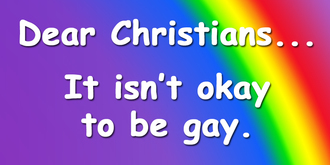I won’t dwell on the fact that I find the song kind of fluffy (yes, God is good, we are loved by Him, and He is perfect, but instead of just repeating those things, couldn’t we expound on the how and wherefore a little?) and hard for me to relate to, having myself never had God whisper to me in the night. Instead, I want to address the key issue I have with the song and the reason I’m writing this to begin with: it espouses bad theology.
Let’s look at the opening line of the song: “I’ve heard a thousand stories of what they think you’re like . . .” In other words, there are a lot of theories out there about who/what God is. Tomlin’s response, “But I’ve heard the tender whispers of love in the dead of the night.” Do you see the problem? Tomlin doesn’t counter the myriad ideas about God with Scripture but with a night-time whisper. How does he know the whisper was God? How does he know the whisper was correct? And what differentiates Tomlin’s God experience (a whisper in the night) from the thousands of stories other people have? Couldn’t a Buddhist or a Hindu or a Mormon or a Muslim or a tree-worshipping Druid hear a whisper in the dead of the night telling them something warm and fuzzy too? That doesn’t make their “story” of God true.
What the song should say is “I’ve heard a thousand stories of what they think you’re like, but I’ve read and studied the Bible and so I know the truth.” But that doesn’t flow off the tongue quite so well (not that flowing off the tongue well is apparently any kind of metric for Christian worship songs). This may not seem like a big deal, but what happens when a seeker shows up in our church, or a new Christian is there, and they’re trying to figure out who God is? We sing Chris Tomlin’s “Good Good Father,” and they go away from our service thinking that if they want to know God, they should go home, tuck themselves into bed, and wait for him to whisper to them. And we’d better hope the “liar and father of lies” doesn’t “[masquerade] as an angel of light” and tickle their ears with midnight murmurings first. Instead, shouldn’t we be stressing to people (in our sermons, our worship songs, our everyday conversations) that if they want to know God or know what He’s like, there is one place and one place only where they should seek that knowledge—His Holy Word?
I don’t mean to denigrate Chris Tomlin, nor do I question his personal doctrine (because I don’t know it). I only know the theology expressed in his songs, and, at least in the case of “Good Good Father,” that theology contains a gaping hole—the song even promotes inaccurate theology. That promotion is not overt, and may not even be intentional, but I think that makes it all the more dangerous. And while the majority of the theology in the song is just fine, that doesn’t excuse the bad theology, and in fact makes it easier for bad theology to slip by unnoticed. The good theology also loses its power because, not being rooted in the Bible, it has no authority—no more than anyone else’s argument for who or what God is like. And that is why I think “Good Good Father” is actually a bad, bad song, and why I propose it has no place in Christian worship services.


 RSS Feed
RSS Feed